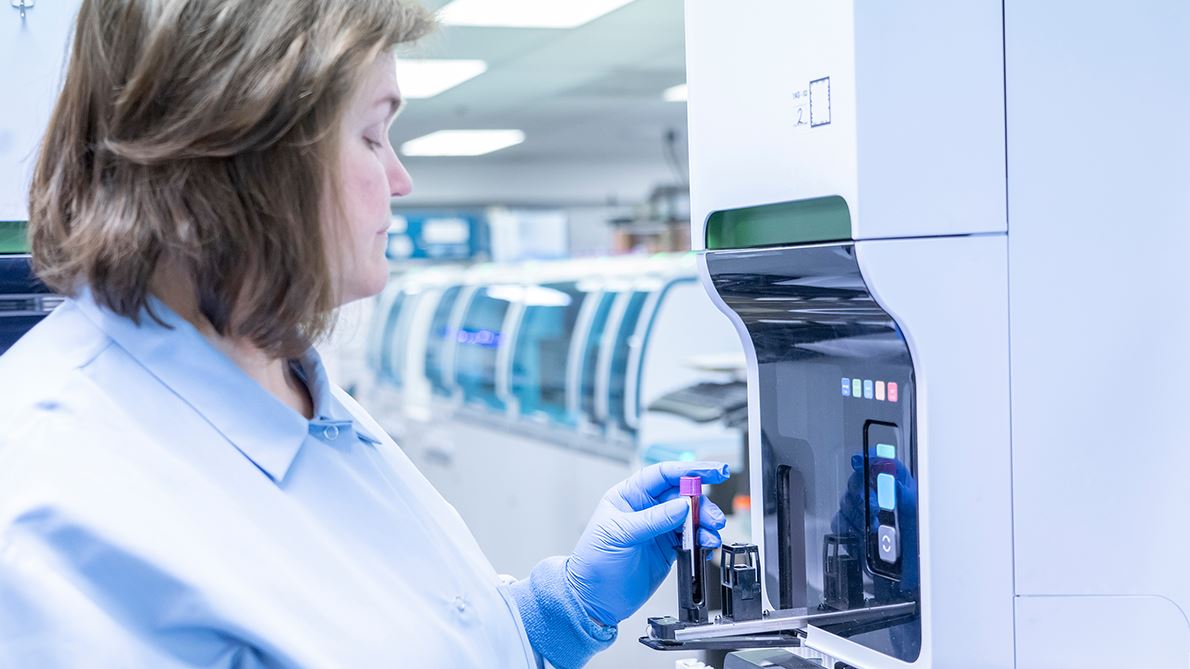Northfield, Ill. (April 9, 2025) – Pathologists are working to accelerate the clinical adoption of novel allogeneic cell therapies to improve cancer care and treatment. A new article from the College of American Pathologists (CAP) highlights the lack of widely established diagnostic tests and validated biomarkers for allogeneic cell therapies and demonstrates how diagnostic laboratories can play a pivotal role in advancing the safety and efficacy of these emerging therapies. By leveraging existing diagnostic approaches, refining current testing methodologies, and fostering collaboration, pathologists can help bridge the gap between research and real-world clinical applications.
Allogeneic cell therapy — using cells from a healthy donor rather than a patient's own cells—provides a promising "off-the-shelf" therapeutic approach for more widespread adoption of cellular therapy. However, its widespread adoption faces challenges such as immune rejection, treatment toxicity, and the complexity of monitoring therapeutic effects.
Pathologists are uniquely positioned to support the clinical integration of allogeneic cellular therapies. “While diagnostic laboratories currently lack specific biomarkers or standardized tests for these therapies, we can optimize how existing tools are used and develop innovative approaches to improve monitoring and safety,” said Matthew Anderson, MD, PhD, A(ACHI), FCAP, co-author of the study and member of the CAP Personalized Health Care Committee.
The CAP publication highlights three areas where pathologists are driving innovation:
- Enhancing Safety Through Advanced Monitoring
Pathologists are already utilizing a variety of laboratory tests and markers—such as cytokines and inflammatory markers—to detect and prevent potentially life-threatening complications like cytokine release syndrome. Additionally, laboratory methods are continuously adapted and refined to identify high-risk patients before treatment, enabling preventive interventions and personalized care protocols.
- Addressing Immune Rejection and Compatibility Challenges
Immune rejection remains a critical barrier to the success of allogeneic cellular therapy. Laboratory experts are enhancing and repurposing next-generation compatibility testing and immune profiling techniques to significantly reduce the risk of graft-versus-host disease and prevent allosensitization. Advances in HLA matching, donor-specific antibody detection, and next-generation immune monitoring will enable clinicians to better assess rejection risks and refine treatment strategies on a patient-by-patient basis.
- Innovating to Ensure Long-Term Treatment Success
Pathology laboratories are exploring innovative methods to track the persistence, functionality, and efficacy of allogeneic cell therapies over time. By adapting genomic surveillance, single-cell analysis, and AI-driven monitoring approaches, pathologists are developing more effective tools to predict treatment durability, assess therapeutic responses, and refine post-treatment care strategies.
Shaping the Future
As new therapeutics move toward broader clinical adoption, pathologists will play a crucial role in establishing the testing infrastructure and quality standards necessary for safe and effective implementation. While no single biomarker or standardized test currently exists for these therapies, pathologists are at the forefront of efforts to optimize and innovate across existing diagnostic frameworks. The CAP report emphasizes that collaboration among laboratory medicine experts, clinicians, and regulatory agencies will be essential in translating these therapies from clinical trials to standard care.
"Pathologists aren't merely supporting allogenic cellular therapy development - they're actively shaping how it will be integrated into clinical practice," said Fabienne Lucas, MD, PhD, FCAP, study co-author and CAP Personalized Health Care Committee member. "Our diagnostic expertise represents the cornerstone of a safer, more accessible cellular therapy ecosystem that will fundamentally transform treatment paradigms."
For more information about this research and CAP's leadership in personalized healthcare advancement, visit cap.org.
About the College of American Pathologists
As the world’s largest organization of board-certified pathologists and leading provider of laboratory accreditation and proficiency testing programs, the College of American Pathologists (CAP) serves patients, pathologists, and the public by fostering and advocating excellence in the practice of pathology and laboratory medicine worldwide. For more information, visit the CAP Newsroom, CAP.org and yourpathologist.org to watch pathologists at work and see the stories of the patients who trust them with their care.
###

